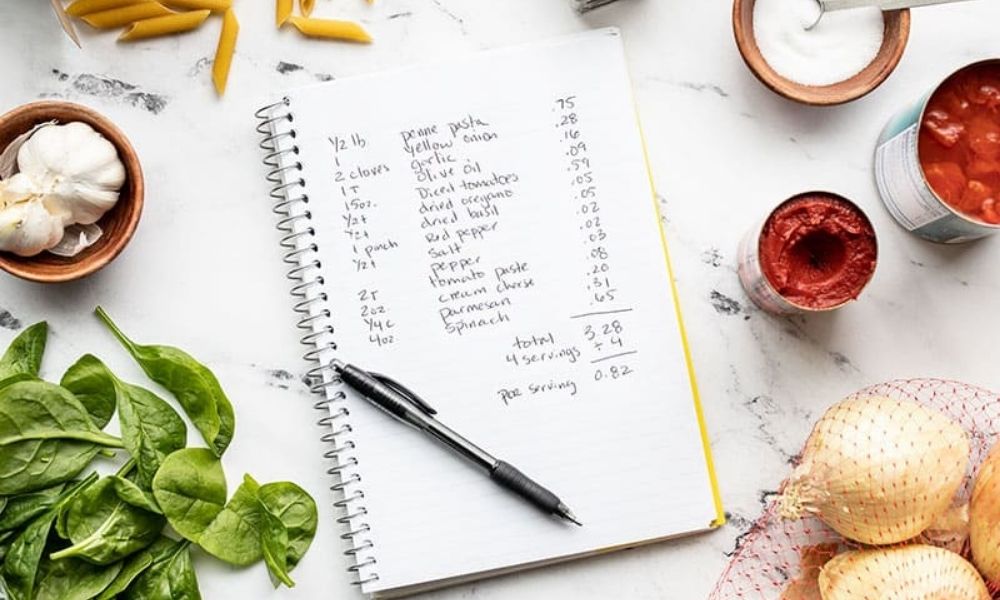Food is an essential part of our daily lives, and recipes are the key to creating delicious and satisfying meals. But have you ever stopped to think about the value of a recipe? Is it just a list of ingredients and instructions, or is there more to it? In this article, we will explore the concept of how much a recipe is worth and the factors that contribute to its value.
Contents
The Basics of a Recipe
Before we dive into the worth of a recipe, let’s first understand what a recipe is. A recipe is a set of instructions that guide you through the process of preparing a particular dish. It includes a list of ingredients, measurements, and step-by-step instructions on how to combine and cook them to create the final dish.
Recipes have been around for centuries, with the earliest known recipe dating back to 1600 BC in ancient Mesopotamia. Over time, recipes have evolved and become more detailed and specific, with the rise of cookbooks and online recipe databases.
The Value of a Recipe
Now, let’s get to the main question – how much is a recipe worth? The answer to this question is not as straightforward as you might think. The value of a recipe can vary depending on various factors, such as the ingredients used, the complexity of the dish, and the source of the recipe.
Read:Can crab recipesIngredients:
The ingredients used in a recipe play a significant role in determining its value. Some ingredients, such as exotic spices or rare meats, can be expensive and can significantly increase the worth of a recipe. For example, a recipe for truffle risotto, which requires expensive truffles, would be worth more than a recipe for a simple pasta dish.
On the other hand, some recipes use common and affordable ingredients, making them less valuable. However, the value of a recipe is not solely based on the cost of its ingredients. The quality and freshness of the ingredients also play a crucial role. A recipe that calls for fresh, locally sourced produce would be worth more than one that uses canned or frozen ingredients.
Complexity:
The complexity of a recipe is another factor that contributes to its value. A recipe that requires multiple steps and techniques, such as braising, marinating, and baking, would be worth more than a simple one-pot dish. This is because the more complex a recipe is, the more skill and time it requires to prepare, making it more valuable.
Additionally, the level of difficulty in a recipe can also affect its worth. Recipes that require advanced cooking techniques or specialized equipment would be worth more than those that can be easily prepared by anyone.
Read:How to convert crock pot recipe to instant potSource:
The source of a recipe can also impact its value. A recipe from a renowned chef or a famous restaurant would be worth more than one from an unknown source. This is because the reputation and expertise of the source add value to the recipe. For example, a recipe for Gordon Ramsay’s signature beef Wellington would be worth more than a similar recipe from a lesser-known chef.
Furthermore, the source of a recipe can also determine its authenticity and reliability. Recipes passed down through generations or from a specific cultural background can hold sentimental value and be worth more to certain individuals.
The Business of Recipes
While most of us view recipes as a means to create delicious meals, they also hold significant value in the food industry. Recipes are the backbone of restaurants, food companies, and food bloggers. They are the key to creating unique and signature dishes that attract customers and build a brand.
For restaurants, recipes are not only used to create dishes but also as a way to control costs and maintain consistency. A well-crafted recipe can help a restaurant maintain the same taste and quality of a dish, even when prepared by different chefs. This is crucial for building a loyal customer base and maintaining a good reputation.
Read:can tuna recipes easyFood companies also heavily rely on recipes to create and market their products. Recipes are used to showcase the versatility and potential of their products, and they are often shared with customers as a way to promote their brand. For example, a recipe for chocolate chip cookies on the back of a bag of chocolate chips is not just a list of ingredients, but also a marketing tool to encourage customers to purchase their product.
Food bloggers and influencers also use recipes as a way to attract and engage their audience. They create and share unique and creative recipes to stand out in a saturated market and build a following. These recipes can also be monetized through sponsored content, partnerships, and advertisements, making them valuable assets for bloggers.
The Cost of a Recipe
Now that we have explored the factors that contribute to the value of a recipe, let’s take a look at the cost of creating a recipe. While some may argue that a recipe is just a list of ingredients and instructions, there are many hidden costs involved in creating a recipe.
Firstly, there is the cost of ingredients. As mentioned earlier, some recipes require expensive or specialty ingredients, which can add up quickly. Additionally, there is the cost of testing and perfecting a recipe. This involves multiple trials and errors, which can result in wasted ingredients and time.
There is also the cost of equipment and tools. Some recipes may require specific kitchen gadgets or appliances, which can be costly. For example, a recipe for homemade pasta may require a pasta maker, which can range from $30 to $300.
Furthermore, there is the cost of photography and styling. In today’s digital age, recipes are often accompanied by mouth-watering photos to entice readers. This involves hiring a professional photographer, purchasing props and ingredients for styling, and editing the photos, all of which can add up to a significant cost.
Lastly, there is the cost of time and effort. Creating a recipe takes time and effort, from researching and testing to writing and editing. This time and effort can be equated to a monetary value, especially for food bloggers and influencers who rely on their recipes for income.
Case Study: The Worth of a Recipe
To further understand the value of a recipe, let’s take a look at a real-life example. In 2019, a recipe for a chocolate chip cookie went viral on social media. The recipe, created by food blogger Sarah Kieffer, was dubbed the “pan-banging” chocolate chip cookie and was shared by numerous media outlets, including The New York Times and Buzzfeed.
The recipe quickly gained popularity due to its unique technique of banging the baking sheet during the cooking process, resulting in a cookie with crispy edges and a gooey center. The recipe was also accompanied by stunning photos, which added to its appeal.
So, how much was this recipe worth? According to Kieffer, the recipe took her over 10 years to perfect, with countless trials and errors. She also invested in high-quality ingredients and equipment, as well as spent time and effort in styling and photographing the cookies. Additionally, the recipe brought in a significant amount of traffic and revenue to her blog, making it a valuable asset for her business.
The Value of a Recipe to the Consumer
While we have explored the worth of a recipe to the food industry, it is also essential to consider its value to the consumer. For many of us, recipes are a way to create delicious and satisfying meals for ourselves and our loved ones. They also provide a sense of accomplishment and creativity in the kitchen.
Moreover, recipes can also hold sentimental value. Many of us have recipes passed down from our parents or grandparents, which hold memories and traditions. These recipes are priceless and cannot be equated to a monetary value.
Furthermore, recipes can also have a cultural and educational value. They allow us to explore and learn about different cuisines and cooking techniques from around the world. They also provide a way to preserve and pass down cultural traditions and heritage.
Conclusion:
In conclusion, the worth of a recipe goes beyond its list of ingredients and instructions. It is a combination of various factors, such as the ingredients used, the complexity of the dish, and the source of the recipe. Recipes also hold significant value in the food industry, as they are essential for restaurants, food companies, and food bloggers. However, it is important to remember that the true value of a recipe lies in its ability to bring people together, create memories, and preserve traditions.
So, the next time you follow a recipe, remember the time, effort, and skill that went into creating it, and savor every bite knowing that it is worth much more than just a list of ingredients.









